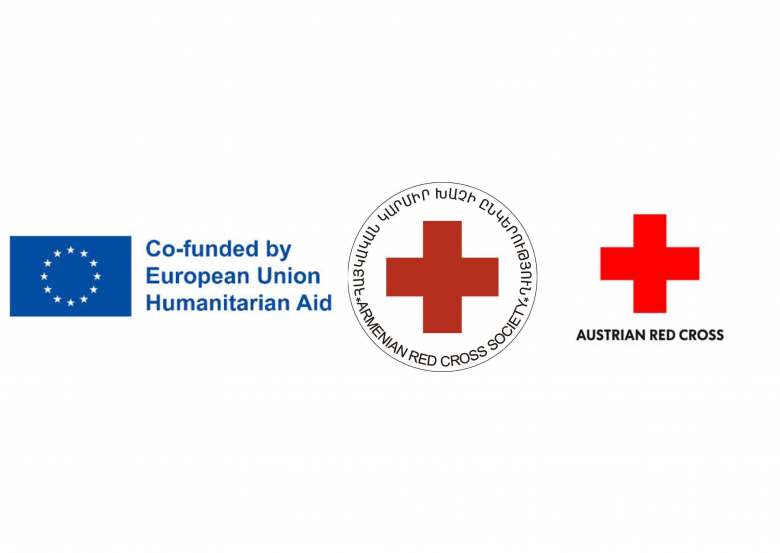
Ramela Mkrtchyan was born and raised in Ivanyan village, located in Askeran region of Nagorno-Karabakh. She lived with her family in her private house. Ramela worked as an assistant cook in the Military Hospital, preparing and serving food for soldiers, meantime her husband Arkady was engaged in gardening and livestock breeding activities. Together, they also ran a small grocery shop where their son sold the produce from their garden. Their life was deeply rooted in their community, centered around hard work, family, and the comfort of their home.
The Negative Impact of Forced Displacement.
The conflict in Nagorno-Karabakh forced Ramela and her family to flee their home in September 2023. They left behind their village, their work, and the life they had built together, carrying only a suitcase filled with essential items. The experience was traumatic, and the uncertainty of their future weighed heavily on them. Moreover, as a result of the displacement, the health condition of her daughter and grandson deteriorated. After the displacement, Ramela and her family settled in the village of Nor Geghi, in Kotayk region.
During a visit of the Armenian Red Cross Society (ARCS), it was discovered that the family of Ramela was in a dire situation: All of them were completely demotivated, hopeless, and jobless. Additionally, the health condition of her daughter and grandson had deteriorated due to the stress caused by the recent displacement, which required special care and medications that were unattainable due to a lack of financial resources, leaving the basic needs of the family unmet. Ramela was completely hopeless and didn't know where to start, which problem to tackle first, as everything was currently problematic and quite challenging.
"My life feels finished, and I have no vision for the future because I had everything in my homeland and have nothing here. Restoring what I lost may take an entire lifetime, which seems impossible," said Ramela.
Employment changes their life
Understanding the importance of helping refugees restore their lives and lost livelihoods, the ARCS stepped in to provide crucial support. In the scope of the RENEW project initiated by the ARCSand co-funded by the European Union, Ramela was assisted with job placement. She was hired by Yeremyan Projects company in one of their kitchen branches as part of their cleaning staff, providing her with a stable source of income. Soon after, her husband Arkady was also hired by the same company in the same branch to work as a meat processor. This employment brought stability and a sustainable income to the family, allowing them to cover their basic needs, access necessary medications and care for their daughter and grandson, as well as to make friends and participate in several activities feeling more integrated into society.
"Extending a hand of support to a refugee can transform his/her life for the better."
The story of Ramela and her family is a powerful testament to the impact of humanitarian assistance. The comprehensive support of the ARCS helped them transition from a state of displacement to one of stability and success. Their journey highlights the importance of providing refugees with the tools and opportunities to rebuild their lives and integrate into the new community. Their story underscores how, with the right support, refugees can overcome the challenges of forced displacement and contribute positively to their new environments. The resilience and determination of Ramela and Arkady, along with their family's efforts, serve as an inspiration to many, showing that even in the face of adversity, hope and success are possible.
With the financial support of the European Union Humanitarian Aid and the Austrian Red Cross, this project provides individual and group psychological support to around 10,000 people; 500 teachers are trained on child protection and psychological first aid topics; six safe spaces ("Smiley Clubs") are established for children; 2850 received cash assistance; and 1,000 individuals received livelihood support (including counselling, employment assistance, and referrals).